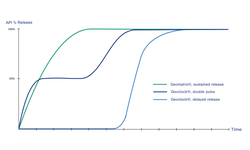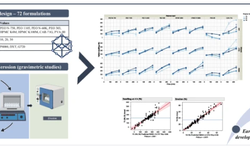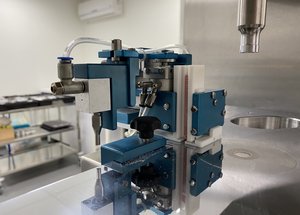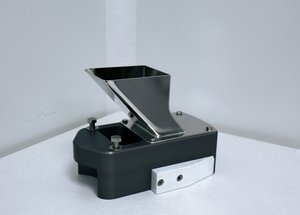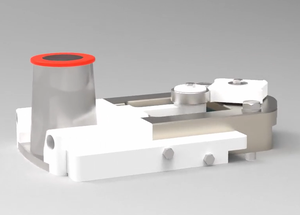Scientific papers
Developing floating dosage forms that ensure extended gastric residence time is a complex task, given the challenges in predicting retention potential in humans through in vitro and animal model studies. In this context, a strategy was explored to assess the stomach residence time of a floating dosage form with intrinsically low density in humans, avoiding the use of imaging techniques, through a self-experiment.
Floating tablets and non-floating controls containing caffeine as a model drug were prepared. The compacts were equipped with pH-dependent enteric coating to evaluate their stomach residence time. Since caffeine is rapidly absorbed in the gastrointestinal tract, prolonged gastric retention of tablets can be evidenced by delayed systemic exposure. Caffeine and paraxanthine levels were analyzed in capillary blood using liquid chromatography coupled to tandem mass spectrometry.
In human volunteers, elevated blood levels of caffeine and paraxanthine were observed after 90 to 180 minutes for the non-floating controls. Conversely, for the floating tablets, two out of three participants showed no significant increase in blood concentrations during the 8-hour sample collection period.
These findings demonstrate the technical feasibility of the proposed clinical study protocol. Further clinical trials are warranted to validate the initial data on the stomach residence time of the developed floating dosage form.
Comments
No comments posted yet.
Add a comment

